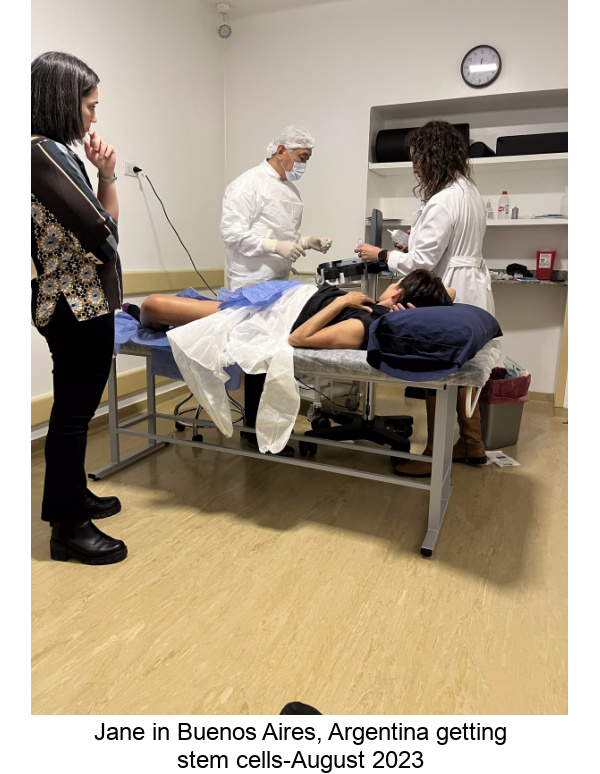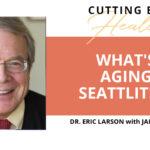
Smoke from wildfires has been plaguing many parts of the US once again this summer. This picture shot from our Northern California cabin looking across the river was taken August 18th. Scary for us, but the river held the fire back. I share this because new research out in mid-August from the Boston University School of Public Health finds wildfire smoke puts us at greater risk of dementia.

Women may age fastest during their 30s and 50s. Read the findings in New Science that I found fascinating last month.
Speaking of women, our risk of dementia is higher than men, yet we receive conflicting information about whether or not to go on hormone replacement therapy (HRT). This study measured the brains of female APOE e4 carriers with or without HRT. There was actually a difference in the size of critical brain structures between the non-HRT women and the HRT-supported women. Women on HRT had more brain volume in certain regions.
My husband, David, and I traveled to Buenos Aires, Argentina in August to receive stem cells grown there from our own fat tissue. We can’t grow stem cells like this in the United States. It will take several months to a year before we see the results, but it was an incredibly positive experience inspired by the podcast interview I did this spring with Dr. Chadwick Prodromos.

After we were home, I was sent this promising research about stem cells being used in a mouse model to halt early Alzheimer’s.
Harvard’s David Sinclair, PhD, author of the NYT’s bestseller Why We Age and Why We Don’t Have To has generated much excitement and a nearly equal amount of skepticism by recently telling the world his lab is seeking a patent for an anti-aging drug. On Twitter, Sinclair wrote: “We’ve previously shown age reversal is possible using gene therapy to turn on embryonic genes. Now we show it’s possible with chemical cocktails, a step towards affordable whole-body rejuvenation.” Read the Sinclair-led research paper published last month in Aging.
But, when one thinks about slowing aging as one of the best ways to prevent age-related issues like dementia, cancer, and heart disease, there are personal and societal concerns like care and money and balancing autonomy and safety. One in five Americans will be over the age of 65 by 2030. That’s a sea change. An expert on aging lays out the looming crisis we face.
To slow aging and, thus, hopefully prevent age-related disease like dementia, Bryan Johnson is going all out. He’s a Silicon Valley entrepreneur spending $2M a year. This article in GQ summarizes pretty well what he’s trying to do.
Finally, in discoveries made independently by three teams including two from the University of California – San Francisco, it has been found that exercise, young blood, and injections of klotho had remarkable success in making old brains young again.












